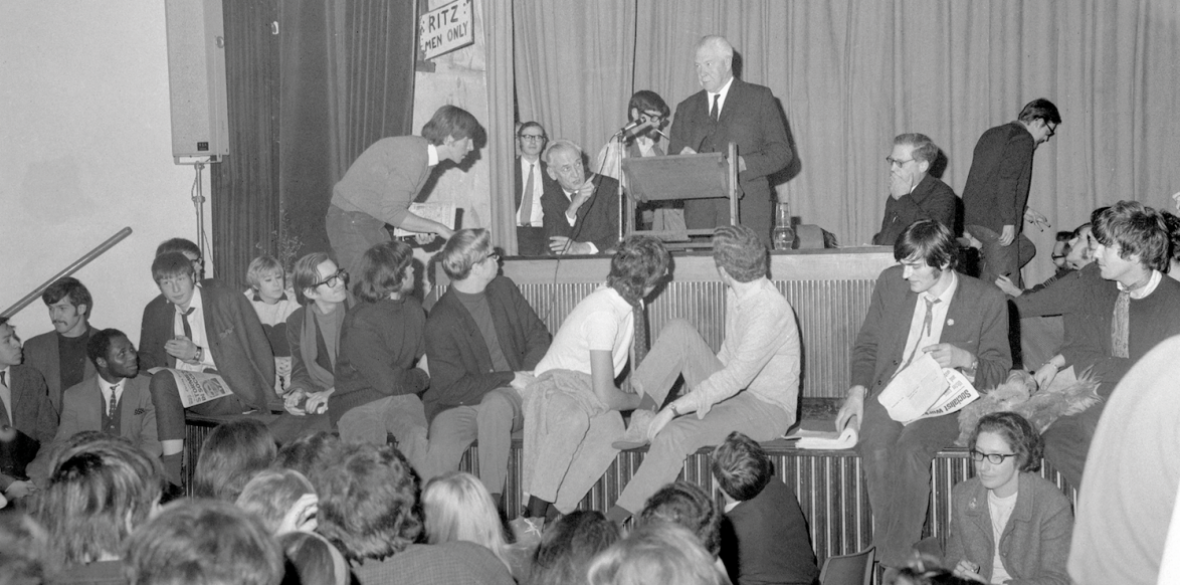This is the last article you can read this month
You can read more article this month
You can read more articles this month
Sorry your limit is up for this month
Reset on:
Please help support the Morning Star by subscribing here
EDUCATION has been a feature of the Tory leadership race. Given the age of the party’s electorate, both candidates are talking about the great grand-children of those voting.
Liz Truss has complained that the comprehensive school she went to in Leeds, Roundhay, did not provide a good education.
However she ended up at Oxford. Rishi Sunak, who went to Winchester College, a rival to Eton, has argued that universities are about “earnings potential” and the focus must be on subjects in that area.
This is existing Tory policy but it underlines a focus on the business university where learning and education in themselves are not the key point. So farewell, then, English literature, humanities, history and indeed Sunak’s own degree in PPE.
It begs the question of what the modern Tory Party is.
In 1961 a Tory government commissioned the Robbins report into higher education. It was published in 1963 and the proposals were accepted, leading to a significant expansion in those going to university.
A key part of Robbins noted that university places “should be available to all who were qualified for them by ability and attainment” (the so-called Robbins principle) and that such institutions should have four main “objectives essential to any properly balanced system: instruction in skills; the promotion of the general powers of the mind so as to produce not mere specialists but rather cultivated men and women; to maintain research in balance with teaching, since teaching should not be separated from the advancement of learning and the search for truth; and to transmit a common culture and common standards of citizenship.”
The emphasis on a common culture is a world away from the culture wars of the Tories in 2022. Yet Robbins was not accepted by the left and criticism appeared in New Left Review and the New Statesman.
The view was that Robbins was about elite education, and while higher education might expand a little, the majority would not obtain degree-level education.
It didn’t turn out like that — a reminder that politics and the world can on occasion change quickly.
A week before Robbins, the Newsom report appeared. It was largely ignored by the Tory government because it focused on that section of the population Robbins was not interested in — the working class.
The 1944 Butler Education Act set up grammar schools for 25 per cent of students who would get an academic education.
The remaining 75 per cent went to secondary modern schools designed to teach lower-level skills and home management (teaching girls how to be housewives).
Newsom’s report, Half Our Future, argued that the system was under-resourced and failing badly.
The Tories didn’t care, then as now. However in October 1964 a Labour government was elected.
There were already campaigners pushing for change in education, for example Caroline Benn and the communist historian of education, Prof Brian Simon.
Labour introduced a new system of comprehensive education designed for all, sweeping away the grammar/secondary modern division.
Labour also introduced a new category of polytechnics which taught to degree level meaning far more students entering higher education than ever envisaged by Robbins.
In 1963 British capitalism was expanding and looking for a broadly educated workforce. In 2022 the Tories, with fewer than 200,000 members, are no longer a national party but a clique focused on short-term profit (often for themselves). Who needs rounded citizens with a liberal education in that context?
I have a personal interest in all this. I can still recall sitting in my north London primary school class one day in early 1968 when the teacher announced we were the first year not to sit the 11-plus and would all go to a new comprehensive school together that September.











